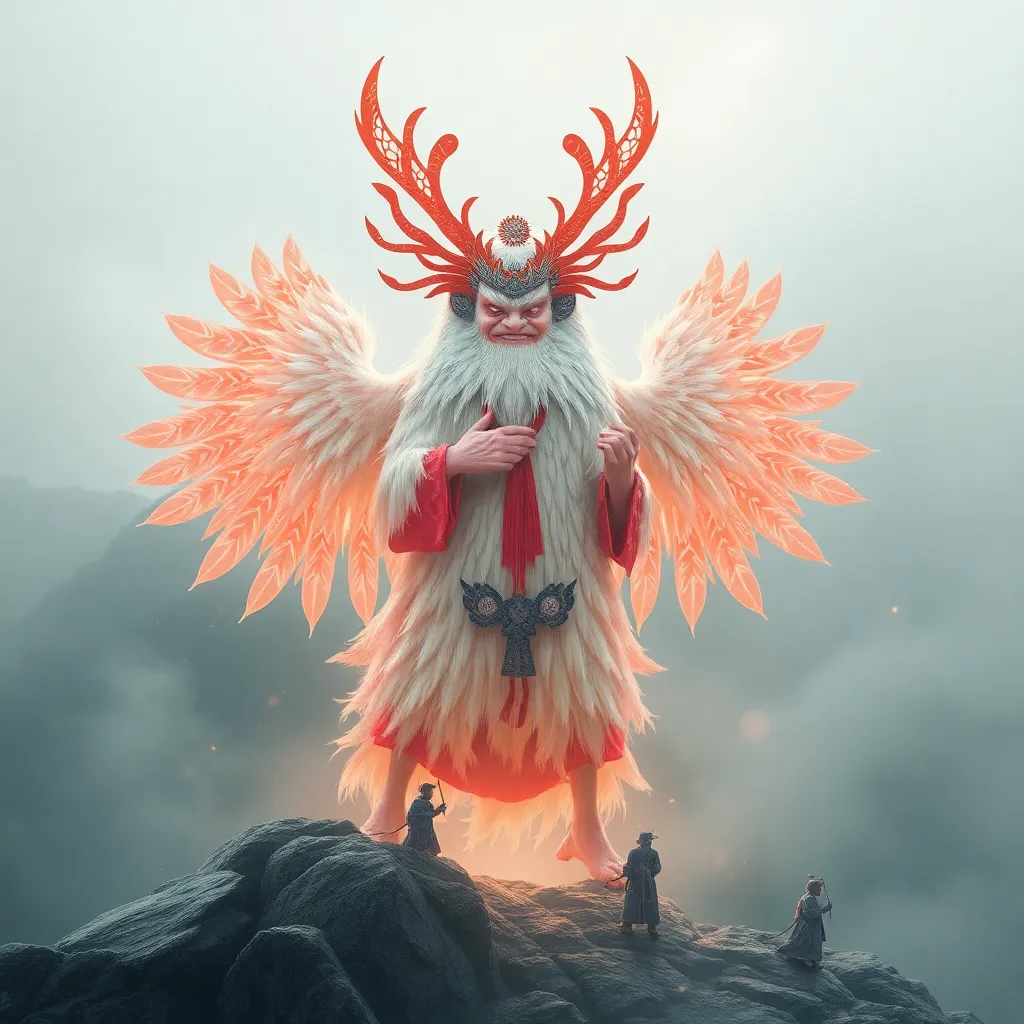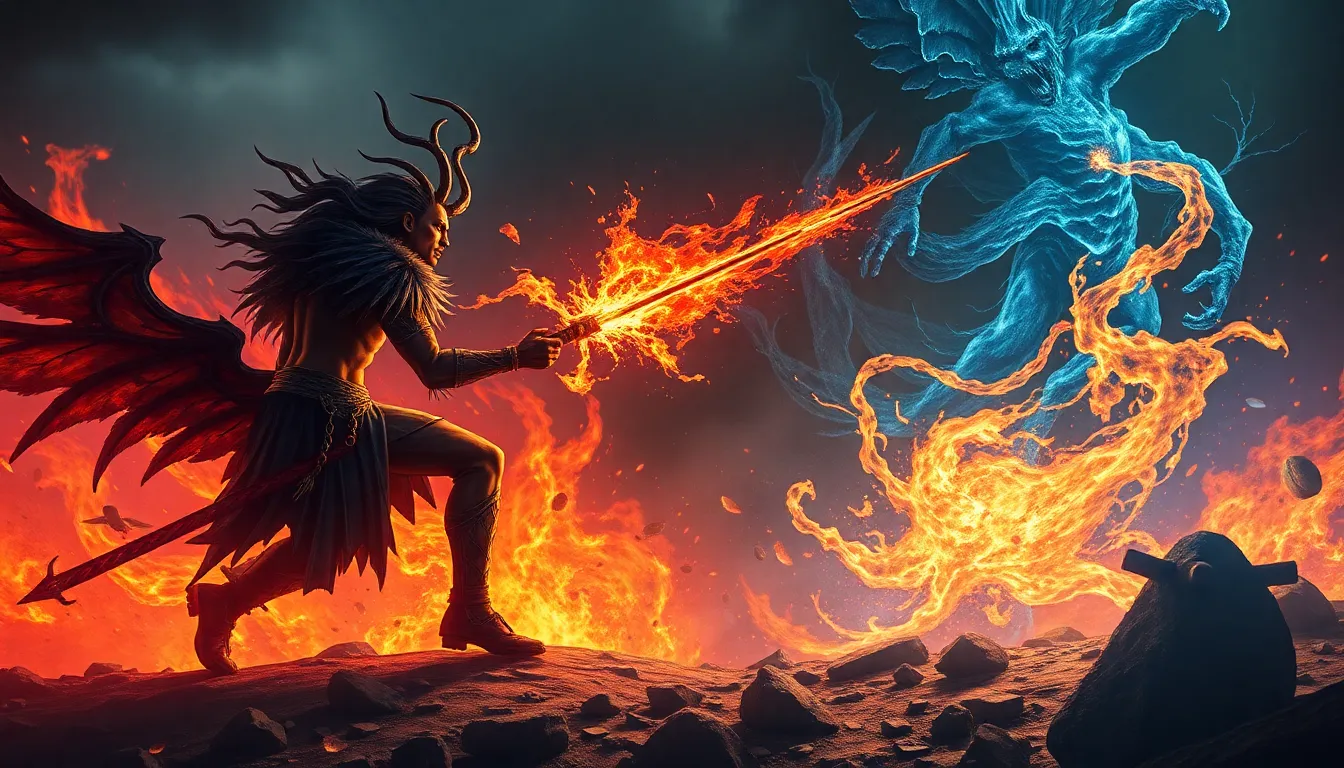The Tengu’s Connection to the Mountain Gods: Exploring Korean Mountain Spirit Traditions
I. Introduction
The Tengu, a fascinating figure in Korean folklore, embodies the interplay between nature and spirituality, especially in the context of mountains. These mythical beings are often depicted as part human, part bird, and serve as guardians of the natural world. In Korean culture, mountains hold immense significance, representing not only physical landscapes but also spiritual realms inhabited by gods and spirits.
This article aims to explore the intricate connection between Tengu and mountain spirits in Korea, shedding light on their historical roots, cultural symbolism, and contemporary relevance.
II. Historical Context of Tengu in Korean Mythology
The Tengu’s origins can be traced back to a blend of indigenous beliefs and influences from neighboring cultures, particularly Japan and China. In East Asian folklore, Tengu are often depicted as powerful beings associated with the wilderness, capable of both benevolence and mischief.
In Korea, the Tengu figure has undergone significant adaptations. While the term ‘Tengu’ is commonly associated with Japanese mythology, Korean traditions have their unique interpretations, often incorporating local elements and characteristics. This adaptation reflects a broader pattern of cultural exchange and transformation in East Asia.
When comparing the Tengu of Korea with their Japanese and Chinese counterparts, several similarities and differences emerge:
- Similarities: All Tengu figures share traits of being guardians of the mountains and nature, often depicted with bird-like features.
- Differences: Korean Tengu may be more closely associated with shamanistic practices and local mountain deities, reflecting a distinct cultural identity.
III. The Role of Mountains in Korean Spiritual Beliefs
Mountains are sacred in Korean culture, often viewed as the abode of gods and ancestral spirits. They symbolize a connection between the earthly and the divine, serving as sites for worship and spiritual reflection.
Major mountain gods, such as:
- San-shin: The mountain spirit revered in many Korean villages, believed to protect the land and its people.
- Cheonjiwang: A prominent deity often associated with mountain peaks and revered in various shamanistic practices.
These mountain gods play crucial roles in the spiritual landscape of Korea, with rituals and practices that include:
- Offerings and sacrifices at mountain shrines.
- Festivals celebrating seasonal changes and agricultural cycles.
- Shamanistic ceremonies invoking the blessings of mountain spirits.
IV. Symbolism of Tengu in Relation to Mountain Gods
Tengu possess a rich symbolism that reflects their dual nature as both protectors and tricksters. They are often perceived as guardians of the mountains, embodying the spirits of nature and the wilderness.
Characteristics of Tengu include:
- Wise and powerful: They are seen as knowledgeable beings capable of guiding humans.
- Trickster aspects: Tengu can also be mischievous, testing the character and resolve of those who venture into their domains.
This duality is significant in understanding how Tengu embody the spirits of the mountains, serving as both protectors of sacred spaces and reminders of nature’s unpredictable power.
V. Tengu Legends and Folklore
Korean folklore is rich with stories of Tengu, who often interact with mountain gods and humans in meaningful ways. Notable Tengu legends include:
- The tale of a wandering monk who befriends a Tengu, learning profound truths about nature and spirituality.
- A story where Tengu assist a lost traveler, guiding him safely through treacherous mountain paths.
These narratives often convey essential lessons, such as:
- The importance of respecting nature and its spirits.
- Understanding the balance between wisdom and folly in human actions.
VI. Tengu in Contemporary Korean Culture
In modern times, Tengu continue to influence Korean culture, appearing in various forms of media, including films, literature, and visual arts. Their representation often reflects a blend of traditional beliefs and contemporary interpretations.
The influence of Tengu is also evident in:
- Popular culture, where Tengu characters feature in animations and video games.
- Tourism, with mountains like Baekdu and Hallasan attracting visitors interested in the spiritual heritage of Tengu and mountain gods.
Moreover, the preservation of mountain spirit traditions is crucial in contemporary society, as these practices foster a connection to cultural identity and environmental stewardship.
VII. Comparative Analysis with Other Cultural Mountain Spirits
Exploring Tengu in a broader cultural context reveals both similarities and differences with mountain deities across Asia. For instance:
- Himalayan spirits: Like Tengu, these spirits are often associated with protection and the sanctity of nature.
- Chinese mountain gods: Often perceived as more benevolent and nurturing, contrasting with the more complex nature of Tengu.
This global perspective enriches our understanding of mountain spirits, illustrating their roles in cultural narratives and environmental relationships. The comparative analysis also highlights the universal theme of reverence for nature found in diverse traditions.
VIII. Conclusion
In summary, the exploration of Tengu and their connection to mountain gods unveils a rich tapestry of beliefs that intertwine culture, spirituality, and nature in Korea. The historical context, symbolic significance, and contemporary relevance of Tengu illustrate their enduring legacy as protectors of the mountains.
Preserving these traditions is essential for maintaining cultural identity and fostering respect for the natural world. As we reflect on the cultural legacy of Tengu in Korea, we recognize their role as guardians, teachers, and reminders of the delicate balance between humanity and nature.



